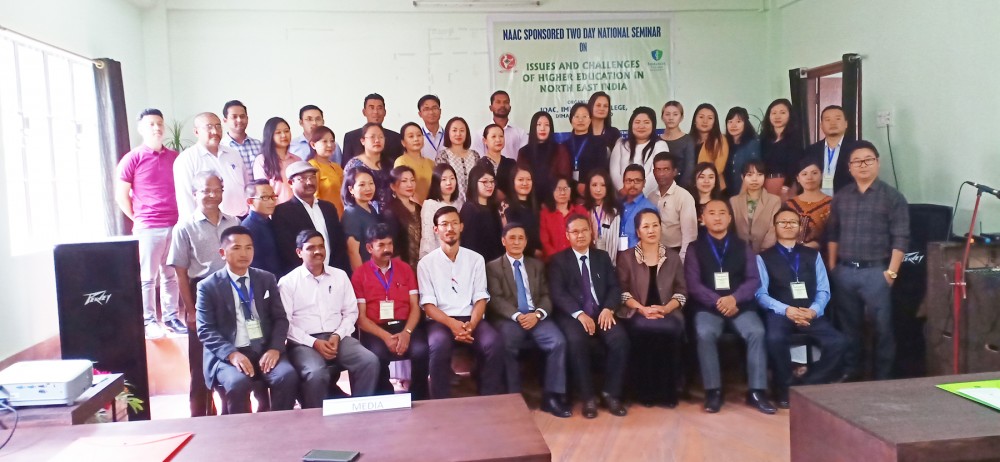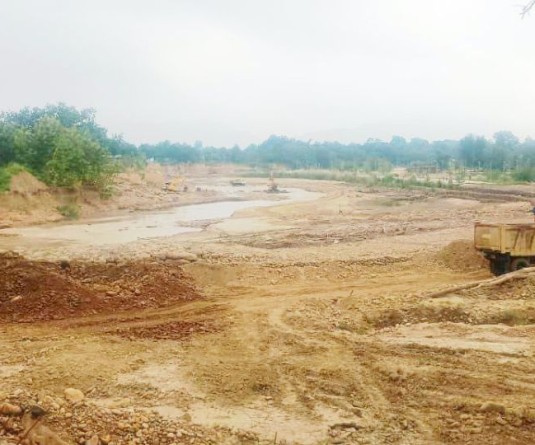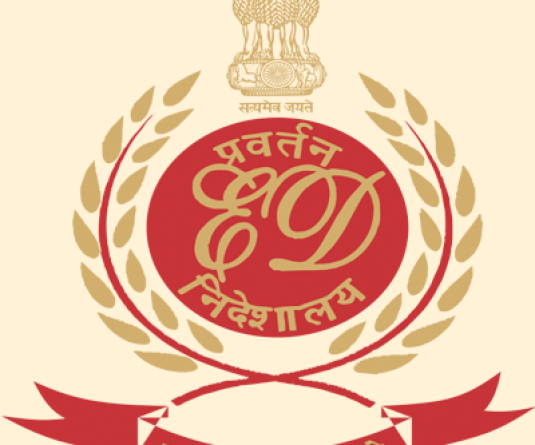Participants of the two-day national seminar at Immanuel College, Dimapur on Thursday. (Morung Photo)

Morung Express News
Dimapur | March 14
A two-day National Seminar on ‘Issues and Challenges of Higher Education in North-East India” began on Thursday at Immanuel College, Dimapur. The seminar is sponsored by NAAC and organized by Immanuel College.
During the technical session, Rajani Das spoke on the topic “An Overview of Higher Education in Nagaland.” He observed that many colleges/universities in the state were still following the traditional method of teaching and learning instead of adopting modern technological teaching aids and gadgets to help improve classroom learning. Das was also of the view that most of the higher educational institutes in the state were not accredited by NAAC and those colleges already accredited got “woefully unsatisfactory grades” due to issues such as low quality input, inadequate teacher-student ratio, poor communication etc.
He identified the availability of quality and qualified faculty as a pre requisite for quality education. Das noted that quality teachers prefer to work in colleges/universities offering better inputs and that most of them were not interested to work in private institutes due to minimum remuneration being offered.
He also said most of the private institutes were facing acute shortage of funds since government support was insignificant.
Das suggested that there was a need to increase fellowships, inter-disciplinary, inter-college/university collaboration and establish industry incubation parks to promote healthy environment for research.
“Without establishing a relationship between education and employment, higher education cannot create interest and thus cannot attract raw talents in the state. So, institutes should focus on extending job oriented programmes,” Das added.
Another presenter, Renemsongla Aier spoke on the topic, “Teachers Burnout and Causes of Burnout among College Teachers in Municipal Area of Dimapur, Nagaland.”
According to Renemsongla, teachers’ burnout implied low perceived self-efficacy, distress due to students’ disruptive behaviour, poor collegiality and poor perception of institutional climate.
In her study jointly carried out with Dr. Euodia B. Myrthong, they found that lecturers’ stress and burn out were on steady increase owing to increasing number of roles that students, parents and employers demand from them.
She noted that teachers susceptible to burnout tended to be unpunctual, have high absenteeism record, show poor job performance and show lack of interest and commitment.
She informed that under Dimapur municipality, the number of teachers in higher educational institutes was 323 out of which 106 are male and 217 are female.
To conduct the study, 60 teachers were randomly selected and the result showed that 2% fell under the category of high burnout, 75% average burnout and 23 % low burnout.
In conclusion, she remarked that while it was important to take care of progress of the students and institutes, it was equally important for a motivated teacher that necessary steps be adopted to prevent them from getting into the spiral of continuing stress and burnout of teachers.
Earlier, during the inaugural session of the seminar, Bauna Panmei, Assistant Professor, Department of History, Tetso College, Dimapur delivered the keynote address.


.jpg)



